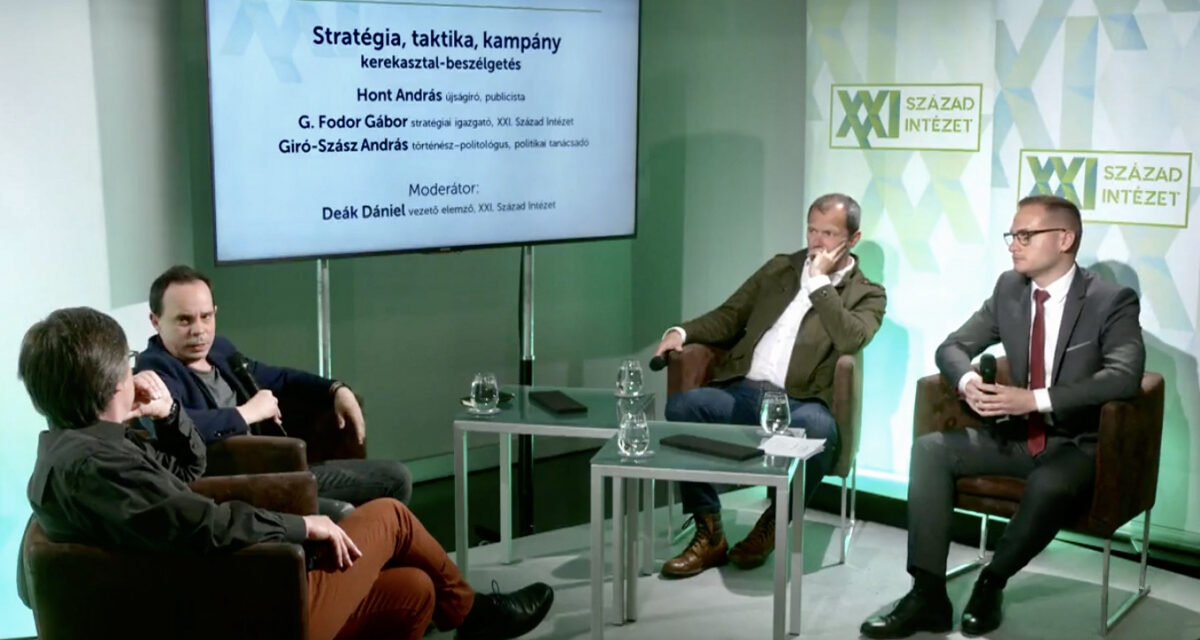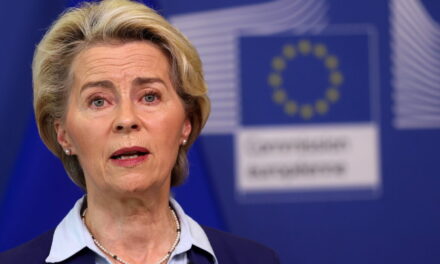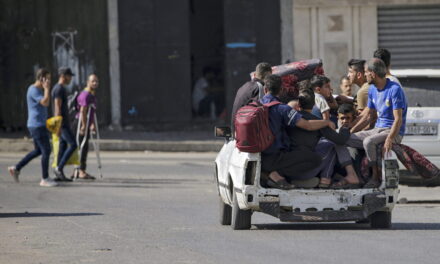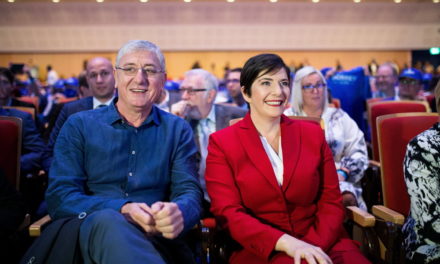The opposition would have to change in almost everything in order to achieve success in the future, the XXI. From the opinions of the speakers at the conference organized by Szazad Inzetez. Among the mistakes, not only the wrong responses to the Russian-Ukrainian war and the incompetence of the prime minister-designate appeared, but also the lack of organization and betrayal.
A large-scale conference on the situation and possible future of the opposition, which suffered a crushing defeat in the election, was held today at the XXI. Század Institute, at which, in addition to analysts, historians, journalists and former politicians expressed their opinions on the topic.
As Mária Schmidt, the XXI. The Director General of Szazad Institute stated: On April 3, 2022, the united opposition was destroyed. Fidesz won a two-thirds victory over them in both the old and the new electoral system and in all kinds of opposition formations. Schmidt praised the government's campaign, the unity, and the fact that there was no discussion or backstabbing within the camp. "The main promise of Fidesz was the preservation of peace and security, which met the needs of society," he said.
The opposition, on the other hand, had no common identity, no political vision, no history of its own, no heart. They were driven only by hatred.
At the same time, Schmidt sees
the biggest responsibility rests with Gergely Karácsony, who he believes is the biggest traitor on the opposition side.
"He is the politician who never wants to be anything, but he always allowed himself to be talked into leading the list and then deserted," he said. He is also responsible for rigging the primary election and placing Péter Márki-Zay on the neck of the opposition, who chattered unstoppably while quarreling with everyone. What he was doing was becoming more and more embarrassing for everyone.
No left-wing content appeared either, in Márki-Zay's speech, he only kept reciting the mantra of the neoliberals. But in addition, he never spoke a word about Hungarian interests.
According to Schmidt, the opposition's only hope is if it has reached the floor now and this story cannot be continued. They should try to stand up, start something new and realize that the world before 2010 has ended - said Mária Schmidt, who also told the opposition to forget about ruralization, because not only the countryside but the whole country voted against them.
You can't win an election from the left
The first round table discussion of the conference brought an interesting discussion, the topic of which was an overview of the political strategy used during the elections and its tactical elements. According to András Giró-Szász, a political consultant and former government spokesperson, the basic condition of a good strategy is self-knowledge and the ability to get some idea of what the people you are talking to think about the world. "The government side had both abilities, but the opposition had problems with self-knowledge and social awareness," he said.
Looking at the last 150 years, Giró-Szász identified four characteristics in which, if the society's ideas are satisfied, situations like the one now emerge, similar to the period during the decades-long rule of the Liberal Party led by Tiszá or Bethlen's Unity Party, or even the For the Kádár era. The first is leadership ability, and the second is for the government to be able to tell a story about itself in which an increasingly large part of society wanted to be a player. The third element is the continuous improvement of the status security of the characters in the story, and the fourth is to put the points of conflict outside the reigning government.
For example, the opposition did not understand this, nor did they understand that the voting base of the left was radically transformed
Giró-Szász emphasized.
Gábor G. Fodor, the XXI. The strategic director of Század Intézet stated: one of the very important lessons is that it is currently not possible to win elections from the left in Hungary. Fidesz is in the middle and over the past twelve years, the center has been shifted to the right. The opposition made the strategic mistake of wanting to formulate a system alternative and decide an era. But there is no need for that. An opposition critical of the system would have a chance, but this would require completely different tools and messages. The opposition that consolidates into the system has a chance.
According to journalist and publicist András Hont, however, the opposition that Viktor Orbán pays has a chance. Because this is a sustained opposition. According to him, it would indeed be possible to convey messages that are radically different from what Viktor Orbán says, but it would attract people's attention.
G. Fodor sees that political knowledge was underestimated on the opposition side. According to him, the question of where the opposition's one million voters have gone is also an incorrect approach. “Why would it be theirs? The electorate is not a commission of faith," he underlined.
The parties agreed that it was a mistake to send opposition vote counters from the capital to the countryside, who then expressed negative opinions about the voters there. As Giró-Szász pointed out, it is not worth sending 20,000 Budapest residents to the countryside, as this shows that they do not have local people.
According to András Hont, the main mistake of the opposition is that
Since 2011, they have only been concerned with how to clean up the system, but they only want to deal with the rest afterwards.
But first you need thought and self-determination. He also blamed it as a mistake that the opposition believed in connection with the war that society would also turn towards the West, even though none of the countries there expected a firm position on the issue of the war from their own society.
No organization, no street presence
During the conversation about the organizational background, András Schiffer, the former president and member of parliament of the LMP - who refused to call the opposition the left - emphasized that the election revealed that the opposition has no organizations and has not been integrated into society.
It's unbelievable how absent they were on the street
- emphasized the former politician, who also called it unprecedented that a party that has never contested an election independently has an increasingly large faction.
As he put it, the opposition primary was a good idea as an innovation, but it turned into a comedy, where it was decided at the table who would run. "And it is a shame for the entire country that a person who is obviously mentally and intellectually unfit for the task has applied for the main power," Schiffer emphasized. The former president of the LMP also drew attention to the fact that we are halfway through the municipal cycle, and the voters see that in most places the parties of the opposition coalition are arguing along the lines of petty or even corruption issues.
According to Petra Halkó, the senior analyst of the Századvég Public Knowledge Center Foundation, the opposition side did not want a leader, only a person who holds power. There was no party behind Márki-Zay, just a movement. Halkó also pointed out that in terms of the opposition, there was no connection between the leader, the parties and the voters. He believed that
as long as national interests are taken out of their formula, the opposition will not succeed.
"Every fall has a story. This is the end of a process that began in 1989," said Béla Galló, the XXI. Század Institute's senior scientific associate, denying that the current election was only based on recent events. As he pointed out, left-wing parties are in decline throughout Europe, the past thirty years are not the success story of the left.
Each country protects its own interests
"There is an elite and knowledge problem on the opposition side. This was seen in the handling of the war. They were thinking of messiahs again, and now Volodymyr Zelensky became their hope. The Hungarian opposition is socially blind" - said Márton Békés, the XXI. The director of Szazad Institute said at the next round table discussion.
According to Viktor Kiss, an employee of the Institute of Political History, both the government and the opposition felt that the situation supported their own narrative regarding the war. The opposition wanted to march together with the West, while the government still put the interests of the nation first.
At the same time, András Gerő, the director of the Habsburg Historical Institute, argued with Viktor Kiss and emphasized that national identity, the national idea, is not Viktor Orbán's invention, he is one in a row who represents it. He also assimilated into a globalist worldview during the regime change, but realized that this was not a natural environment for us in terms of power politics. The West pursues other interests. "The opposition would have done the best if it stood behind Orbán on the issue of war. But that's not what he did," emphasized Gerő.
Regarding the foreign policy context and the much-mentioned Hungarian special trip, András Kosztur, the XXI. Szazad Institute's leading researcher stated that practically
every European country pursues a separate path policy, everyone supports sanctions against Russia, for example, which do not harm their interests.
Regarding the evolution of the Hungarian government's perception abroad, journalist András Kósa, the editor-in-chief of Azonnali, called the outcome of the French presidential election decisive, as well as whether Viktor Orbán will visit Warsaw as the new prime minister, as he did at the beginning of each term.
Ervin Nagy, the institute's analyst, emphasized in this regard: the opposition was constantly rooting for the collapse of the V4 alliance. They tried to drive a wedge into a political cooperation that had worked well until now. "But that wasn't a successful strategy either. Hungary is not isolated, it is a legend," he said. According to András Kosztur, the Hungarian government was able to find a different alliance on every issue. There are no covenants set in stone.
Kósa also agreed that it is not possible to talk about isolation, but at the same time he sees it as an important moment that the leaders of the V4 countries have met many more Western leaders since the outbreak of the war than Viktor Orbán. However, according to Ervin Nagy, no conclusions can be drawn from this.
Opening photo: András Hont, Gábor G. Fodor, András Giró-Szász and Dániel Deák at the debate. (photo: Facebook, XXI Century Institute)












